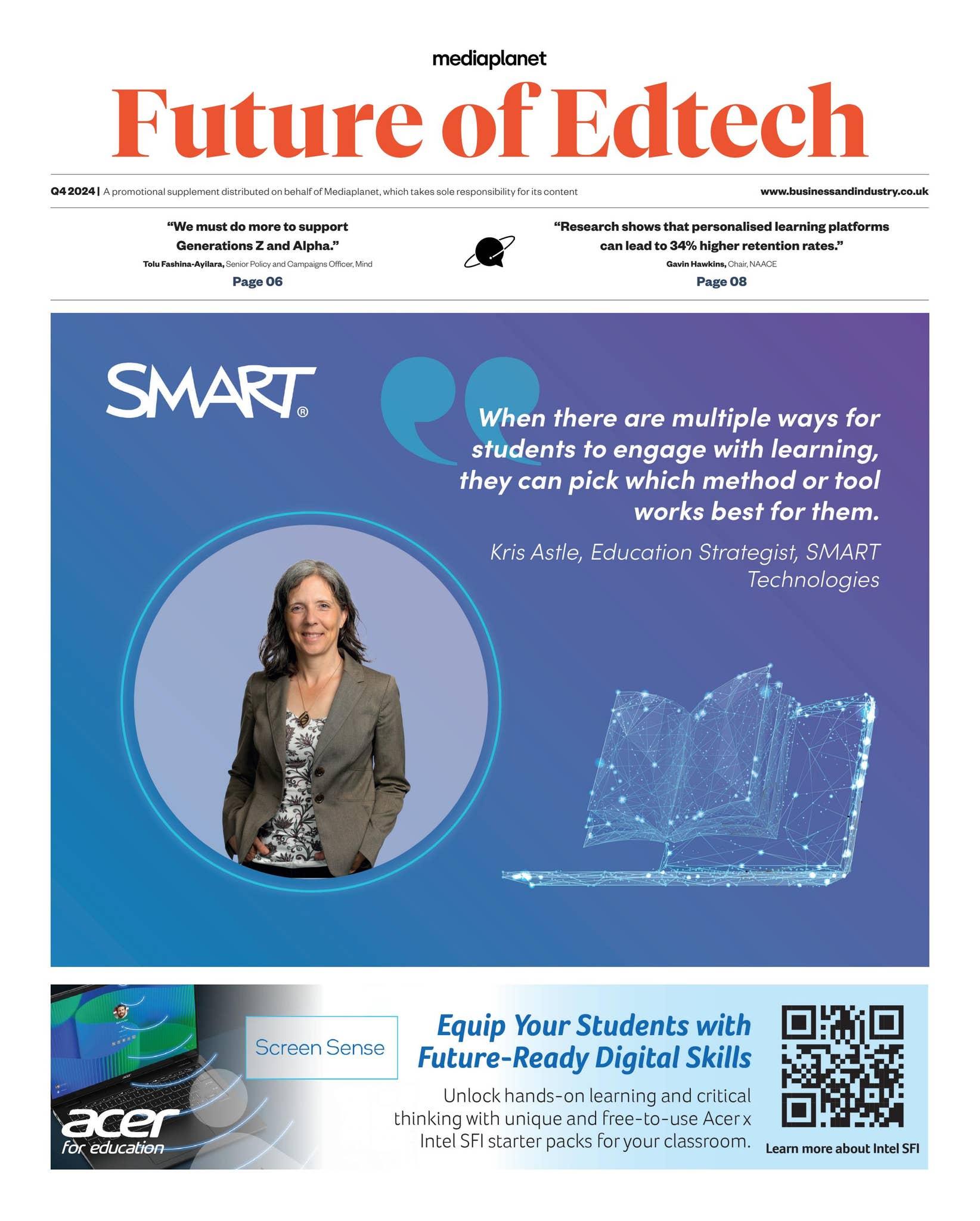The Next Big Thing in EdTech: expert Predictions for Future Innovations
Education technology, or EdTech, has taken the world by storm in the past decade. As education rapidly embraces digital conversion,the next big thing in EdTech is always just around the corner.But what innovations will shape learning in the years to come? We reached out to leading experts and scoured the latest research to provide you with insightful predictions, benefits, practical tips, and inspiring case studies about future EdTech innovations.
Why Future Innovations in EdTech Matter
The global EdTech industry is projected to reach USD 404 billion by 2025,driven by demand for personalized learning,artificial intelligence,and immersive technology in classrooms. These EdTech trends are not just disruptive; they’re transformative, promising to enhance learning outcomes and bridge educational gaps worldwide. Staying ahead of EdTech advancements isn’t just exciting—it’s essential for educators,learners,and institutions looking to thrive in a digital era.
Expert Predictions: What’s the Next Big Thing in EdTech?
We asked EdTech thought leaders and analyzed global education technology trends. Here’s what the future holds:
- AI and Adaptive Learning: Artificial intelligence is set to revolutionize education by offering personalized content, real-time feedback, and adaptive learning paths tailored to each student’s needs.
- Immersive Learning through AR/VR: Augmented reality (AR) and virtual reality (VR) will create highly engaging, hands-on learning environments, especially for STEM, healthcare, and technical training.
- blockchain Credentials: Blockchain technology promises secure, verifiable, and portable digital credentials, simplifying the process for learners and future employers.
- Peer-to-Peer and Social Learning: platforms leveraging community and collaboration will foster active knowledge sharing, mentorship, and group-based problem-solving.
- Edutainment and Game-Based Learning: combining education and entertainment, game-based EdTech solutions motivate learners through challenges, rewards, and storytelling.
- Voice Technology and natural Language Processing: Smart assistants and voice-enabled platforms will make learning accessible and interactive for all ages and abilities.
Key Benefits of Upcoming EdTech Innovations
- Personalized Learning: AI-driven platforms can adapt curricula and resources to individual learning styles, boosting engagement and retention.
- Access and Inclusivity: Cloud-based EdTech tools break down geographic and financial barriers, supporting lifelong learning for diverse populations.
- Skill Advancement: Real-world simulations and game-based learning help students build practical, job-ready skills efficiently.
- Data-Driven Insights: Advanced analytics empower educators and administrators to make informed decisions, track progress, and intervene proactively.
- Seamless Assessment: Instant feedback and adaptive testing streamline assessment, saving educators time and helping students learn from mistakes in real-time.
Case Studies: edtech Innovations in Action
Case Study 1: Virtual Reality in Science Education
The university of Maryland introduced VR labs to its biology curriculum, enabling students to conduct virtual dissections and molecular explorations. Results? Engagement shot up by 40%, and exam scores improved by 18% compared to customary methods.
Case Study 2: AI-Powered Tutoring in K-12
EdTech startup Squirrel AI deployed adaptive learning platforms in over 1,000 Chinese schools. The personalized learning plans helped struggling students catch up faster and challenged advanced learners, leading to a 25% jump in overall academic achievement.
Practical Tips for Schools and Educators to Embrace the Future
- Start Small, Scale Fast: Pilot new EdTech tools in select classrooms before wider rollout. Use feedback from teachers and students to guide expansion.
- Invest in Training: Educators need ongoing professional development to maximize the benefits of new technologies.Allocate resources for regular workshops and peer-led sessions.
- Focus on Accessibility: Ensure that digital tools comply with WCAG standards so all students, including those with disabilities, can participate fully.
- Encourage Student-Centered Learning: Choose EdTech solutions that put students in the driver’s seat—facilitating inquiry, collaboration, and hands-on creation.
- Monitor and Measure: Regularly assess the impact of innovations using analytics dashboards, student and staff surveys, and academic performance data.
What Industry Experts Say About the Future of EdTech
“the next wave of EdTech will leverage AI to personalize learning at scale, making education more equitable and effective for everyone.”
— Dr.Priya Khanna,EdTech Researcher & Analyst
“expect EdTech to move beyond content delivery and become platforms for true human connection,lifelong learning,and skills that adapt to the future of work.”
— Mark Chen, Founder of LearnX
FAQs on The Future of EdTech
-
what are the biggest challenges facing EdTech adoption?
Teachers’ digital skill gaps, budget constraints, and ensuring data privacy remain pressing concerns.
-
How can schools stay current with rapid EdTech innovation?
Build flexible curricula, invest in teacher training, and foster partnerships with EdTech providers.
-
Will EdTech replace teachers?
No. The consensus is that EdTech empowers educators by automating routine tasks and facilitating individualized instruction, letting teachers focus on mentorship and creativity.
Conclusion: Embrace the Next Big Thing in EdTech
The future of EdTech promises a blend of innovative technology, personalized pathways, and inclusive educational opportunities. As AI-driven platforms, immersive AR/VR, and secure digital credentials become mainstream, schools and educators must adapt to unlock new possibilities for student success. By staying informed, investing in training, and embracing change, we can ensure that the next big thing in EdTech benefits learners worldwide.
Ready to take your learning surroundings into the future? Start exploring EdTech innovations today and be a part of the educational revolution!

